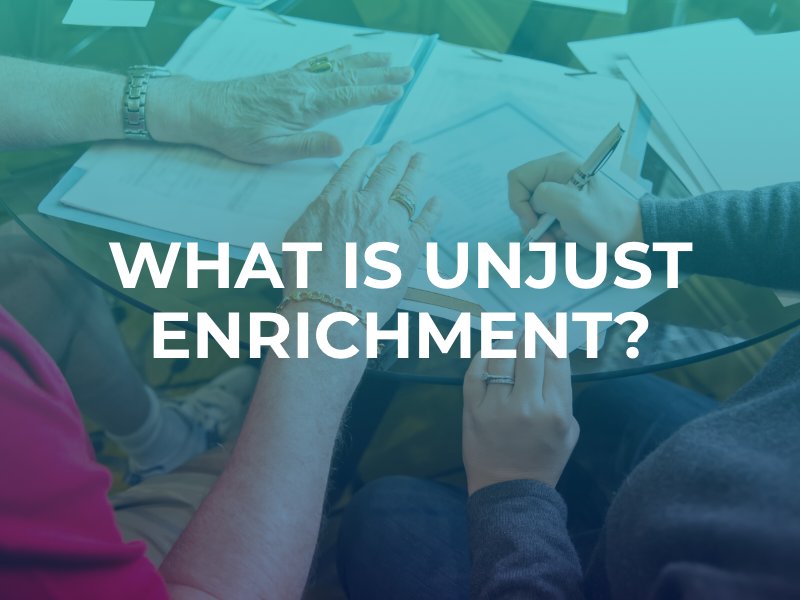What Is Unjust Enrichment?
Whenever a person enters a contract with another individual or entity, it is generally understood that both parties must uphold their end of the agreement. However, it is not uncommon for one party in an agreement to fulfill their part of the deal while the other party does not. In some cases, this can be referred to as “unjust enrichment.” Here, we want to discuss what unjust enrichment means and whether or not one party in the agreement can recover compensation through a claim of unjust enrichment.

Defining unjust enrichment
Unjust enrichment occurs when Party A confers a benefit on Party B without Party A receiving the restitution as required by law. In general, unjust enrichment claims happen when there is an agreement between two parties. An example would be if Party A fulfills their part of the agreement while Party B does not fulfill their part of the agreement.
It could be tempting to define unjust enrichment as a gift, but it is important to distinguish between the two. A gift is given without any expectation of receiving something in return. When two parties have entered into an agreement, and the agreement specifies services between two parties, the services rendered should not be considered a “gift.”
How to recover compensation on a claim of unjust enrichment
In order to recover compensation for a claim of unjust enrichment, the plaintiff will need to show that the defendant was unjustly enriched at the expense of the plaintiff. As a basic example, suppose AAA Construction is hired by Agatha Barnaby to put a new roof on her house. The two parties decide to enter into an agreement where Ms. Barnaby pays 50% of the costs upfront and will owe 50% upon completion of the roof. AAA Construction completes the roof, but Ms. Barnaby does not pay the second 50% upon completion. Because Ms. Barnaby is a friend of a friend of the owner of AAA Construction, there was no contract involved. Therein lies the problem, and why this will be an unjust enrichment case and not a contract dispute.
Typically, recovery on a theory of unjust enrichment occurs when there is no contract between the two parties or when the contract turns out to be invalid. It is important to note that just because there is no official contract does not mean that no compensation can be recovered.
In order to recover compensation in these cases, a plaintiff cannot pursue unjust enrichment in the following instances:
- The gift principle. The plaintiff cannot give the defendant a gift and then retroactively sue the defendant claiming unjust enrichment.
- The choice principle. The plaintiff cannot confer a benefit to a defendant without first giving the defendant the right to reject the benefit, and then expect something in return. For example, a person could not put a deck onto somebody’s house while they are on vacation and unaware of the construction and then expect the person to pay for the deck (assuming there were no prior agreements about services to be performed).
If a plaintiff does believe they have an unjust enrichment case, they need to be able to prove five elements in order to be successful for their claim:
- There was an enrichment
- They lost value due to the enrichment (an impoverishment)
- There is a connection between the enrichment and the impoverishment
- There is in absence of justification for the enrichment and the impoverishment
- There is no remedy provided by law (i.e. there is no contract between the parties)
While these cases do not typically revolve around written contracts, unjust enrichment is indeed very real. Plaintiffs can recover compensation, but that they may need assistance from your attorney in order to receive maximum compensation for their claim. Speak with our Atlanta personal injury lawyers today at (404) 321-1700.